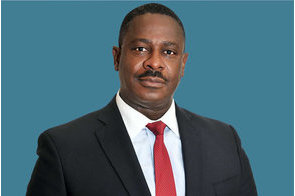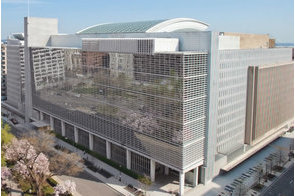Achieving fiscal and employment boosts with solid minerals development

Summary
Formalisation of the solid minerals sector is the route to its sustainable development and economic viability.
President Muhammadu Buhari was on point in pledging priority attention to agriculture and solid minerals development in his economic blueprint. More details on this will definitely emerge when he starts to work with his Economic Management Team. In the meantime, he has succeeded in sending a strong signal that his Administration will strongly intervene in these sectors. This provides a basis for optimism and expectation that private investments will follow the interventions.
Agriculture provides a means of sustainable livelihood to millions of Nigerian smallholder farmers. But this has come under threat in the Northeast in the last couple of years of terror by Boko Haram insurgents. Even so, climate change poses a wider threat to agriculture, and it has compelled the need for adaptation by farming communities. Therefore, restoration of livelihood of the people is one compelling reason to give policy priority to agriculture. The other equally important reason is the fact that agriculture is a sector of immense growth potential and economic transformation, through agro-processing and development of the agribusiness value-chain.
Ending the fits and starts
Quite on the contrary, the solid minerals sector has for decades remained circumscribed by policy neglect, ineffective implementation of reforms, and unsustainable mining operations. Policy attention to the mining industry tends to be fleeting. There is a discernible alignment of reform of the solid minerals sector with when policymakers make grand national plans like the Vision 20:2020, or in moments of realisation that the country can tap the mineral commodity price boom – like we have witnessed in the most part of the last decade. Also, the need to reform solid minerals development comes to the fore in the period of economic adversity imposed by lower oil prices, as it is currently the case. This means, therefore, that, by the very circumstantial nature of the pronouncements, the implementation of the various reforms are often not sustained. When the reform stimuli are absent or weak, a corresponding weakness in commitment to implementing the reforms becomes evident. As a result, the solid minerals sector remains an acutely underperforming sector of the economy by all indicators, contributing a meagre 0.43% to the GDP in 2010.
However, a cross-section of market participants including policymakers, entrepreneurs, investors and funders agree that development of the solid minerals sector will help create jobs, generate returns, increase government revenue and spur forward linkages in several industrial sectors of the economy. We are completely aligned with this view at Nigerian Export-Import Bank (NEXIM Bank). Solid minerals have immense potentials to support the quest for economic diversification in the country. The extensive use of labour across the solid minerals' value-chain, from exploration to production, processing and end-use – including export – also shows immerse opportunities for employment generation and poverty reduction. In addition to this, Nigeria can become a strong player in the global mineral commodity market, beyond oil and gas; thereby, providing a source of significant and complementary foreign exchange inflow to the economy.
An economy for all the states
In the context of the Nigerian political economy, the solid minerals sector even takes a rather unique significance. Diverse solid mineral deposits are widespread across the geographic belts of the country. In essence, solid minerals development provides the country perhaps the biggest opportunity for making cross-country investment in land assets. This was the reason each of the states of the federation was advised to push forward one solid mineral it wishes to develop. Every state in the country would, therefore, be able to have a functioning mining economy that is generating tax income for both the state and federal governments. This is in contradistinction to oil & gas; whose proven reserves are concentrated in one geopolitical zone of the country. This localisation of the main source of revenue for the three tiers of government has been the source of great fiscal and political tension.
But a great deal of planning, financing and continuous policy support is required in bringing the potentials of the solid minerals sector to fruition. As most observers know, we have seen a number of landmark reforms of the sector more recently, including the passing of the Nigerian Minerals and Mining Act 2007; establishment of the Mining Cadastre Office – an independent body that is responsible for the administration of all mineral titles; and establishment of the Nigeria Geological Survey Agency, which collects geo-scientific information about the country and centrally provides access to it for interested entities.
Knowledge-sharing among operators
A market-facing institution like NEXIM Bank has been able to identify some of the possibly-overlooked, but critical support initiatives that the mining industry requires, from about five years of close association with operators. For instance, we found there is a need to leverage the limited technical know-how in the industry to the benefit of a wider number of industry operators. We found that technical know-how is conditional for being able to attract funding. While such funding, theoretically, can be provided by investors and financiers, those who can provide the investment look for how the existing brownfield projects which dot the landscape are structured.
To address this, NEXIM Bank has provided the Miners Association of Nigeria (MAN) a free, fully-functional secretariat within NEXIM House in Abuja since 2013. The idea is to help facilitate knowledge-sharing and stakeholders engagement by operators in the sector. With this, MAN has been enabled to share project knowledge and best practices among its members. The Association has been able to increase its advocacy, leading to the establishment of the Solid Minerals Development Fund (SMDF). This fund was approved in 2013, although its operationalization is still encumbered by fiscal and administrative constraints.
Beyond this, NEXIM Bank has been providing funding intervention for mining businesses. We have disbursed about N4 billion low-interest funding over the last five years. Our funding is developmental in outlook. We essentially want to help the mining operators to fund early-stage operations, build a profitability profile for their projects, so that they can subsequently attract commercial funding from the banks. This model works. It, therefore, recommends a need to provide scale for development funding intervention as a strategy to unlock private sector, commercial funding for the solid minerals sector.
Relative to the funding we have been able to provide, we have seen some of the impacts we believe are very possible when funding intervention is made in a sustainable way to the solid minerals sector. NEXIM Bank's intervention has been able to create or sustain over 2,172 direct jobs with its intervention in the solid minerals sector. And it has helped the miners to generate over $28 million annually in foreign exchange.
Simple solutions to seeming knotty challenges
Two of the most knotty challenges in developing the solid minerals sector are the formalisation of the mining operations and development of the network of road and rail infrastructures to link mining to markets. As with most difficult problems, the answers are simple solutions. For instance, NEXIM Bank's funding incentivises formalisation. Government can provide a wider vent to this principle by creating conditional incentives for accessing development funding. The conditionalities can include membership of the trade association – Miners Association of Nigeria; whereby MAN provides social collateral (to offset part of financial collateral requirement) for members and help monitor performances of the businesses and repayment. But definitely, the conditionalities must include acquisition of the tax identification number. The TIN requirement would not negate whatever tax breaks that might be offered miners, but it must compel annual filings with the tax authorities. This will ensure that fund disbursement will clearly map government's tax revenue for the future.
This fiscal framework is crucial because of the scale of the revenue that will accrue to government in the forms of royalties and taxes. It even becomes the more important considering that, beyond providing funding which must be repaid, government has a huge requirement (and incentive) to, over the next few decades, invest in infrastructure to support the mining sector. Such investment would be the more credible testament of government's long-term commitment to the mining industry. It will encourage large-scale investment because the entry barrier that lack of infrastructure constitutes would have been removed.
Artisanal miners, who currently dominate the sector, have eluded government's tax net. But for government's interventions – in funding and providing infrastructure – to be sustainable, they must generate returns. Formalisation of the solid minerals sector is the route to its sustainable development and economic viability. We have a number of economies that have been able to formalise their mining sector and therefore generate huge revenues from the multiple big operations that create and support employment. An example is the mining sector of South Africa, the second largest economy in Africa, which accounts for one-third of the market capitalization of the Johannesburg Stock Exchange (JSE).
Comparative data for 2010 shows that South Africa's mining sector contributed 18.7% to its $365.2 billion GDP and created 514,760 direct jobs and 838,623 indirect jobs. Australia also has a substantial mining sector which contributed 8.4% of its $1.141 trillion GDP, and created 183,000 direct jobs. Quarrying and mining in Nigeria contributed 0.1% of the rebased GDP of $510 billion in 2013, contributing mostly informal jobs in the sector. In terms of mineral endowments, Nigeria compares favourably with these countries. We, therefore, can aspire to the level of the economic performances of their mining sectors and achieve as much employment generation, if not more.
Roberts Orya is Managing Director / Chief Executive Officer, Nigerian Export-Import Bank.
Related
-
DFIs pledge $80 billion investments in African businesses over the next five years
DFIs play an important role in helping to build markets, mitigate risk and pave the way for other investors to enter new ...
-
What Ould Tah’s tenure at BADEA reveals about his AfDB candidacy
For the AfDB to remain credible in the evolving development finance environment, as it has successfully done under the ...
-
World Bank and AfDB collaborating on sovereign risk tool
The sovereign exposure exchange agreement is a risk management tool collaboratively developed by the major MDBs.










